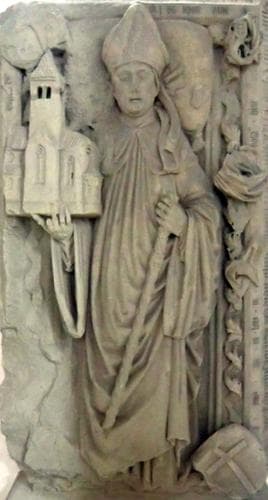
Blessed Werner Von Ellerbach
Blessed
Feast Day: June 4
Death: April 1, 4
Biography
Blessed Werner Von Ellerbach, also known as Werner of Wiblingen or Varnerio, was a Benedictine monk at the Saint Blaise Abbey in the Black Forest area of Baden-Württemberg in modern Germany. He was born in unknown circumstances and his exact birthdate is not recorded. Werner, along with several brother monks, was sent to establish the Wiblingen Abbey near Ulm, Germany in 1099.
Werner served as the first abbot of Wiblingen Abbey for over 25 years, diligently nurturing the spiritual and physical growth of the community. Under his leadership, the abbey flourished as a center of monastic life, education, and devotion. His devotion to his fellow monks and the local population earned him great respect and admiration.
On 2 April, 2 May, or 4 June (historical records vary), in the year 1126, Blessed Werner passed away at Wiblingen Abbey due to natural causes, leaving behind a lasting legacy. He was laid to rest in front of the Holy Cross altar in the monastery church, where his grave became a place of veneration and pilgrimage.
Throughout history, the relics of Blessed Werner have played an important role in devotion and spiritual life. On 21 March 1782, his relics were enshrined in the new monastery church at Wiblingen Abbey, allowing for continued veneration by the faithful. Additionally, some of his relics were also enshrined at the Saint Blaise Abbey, further emphasizing the reverence bestowed upon him.
One remarkable tradition associated with Blessed Werner is the annual distribution of "Wernerbrote" (Werner's Bread) by the Wiblingen Abbey. Until 1629, during the Thirty Years War, loaves of blessed bread were baked and distributed as a protective measure against disease. This practice exemplified the care and concern Blessed Werner had for the physical and spiritual well-being of those entrusted to his care.
Though specific details about his life, including his birth and certain aspects of his veneration, remain unknown, the influence and impact of Blessed Werner Von Ellerbach endure. His dedication to monastic life, his role as a shepherd to his community, and his association with numerous sacred relics make him an important figure in the history of the Catholic Church. The faithful continue to honor his memory and seek his intercession as they strive for spiritual growth and protection.